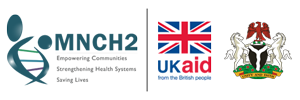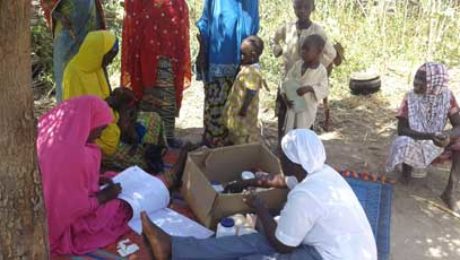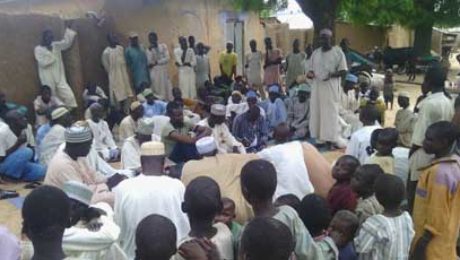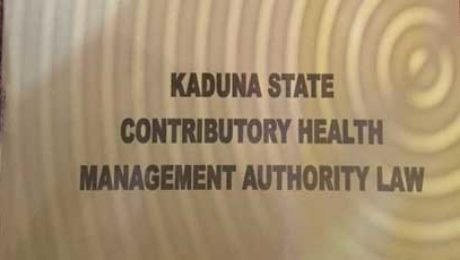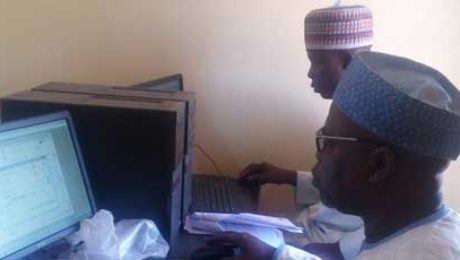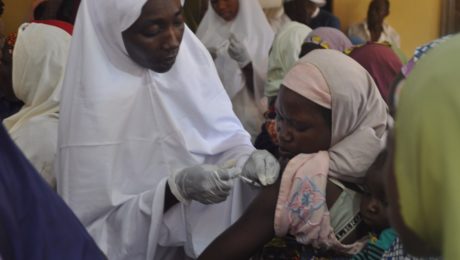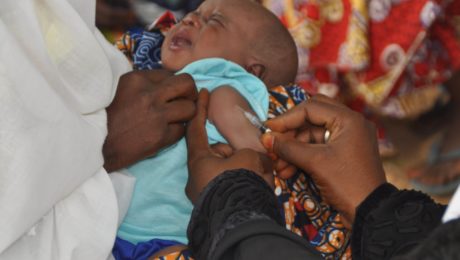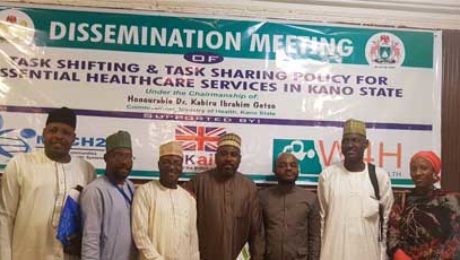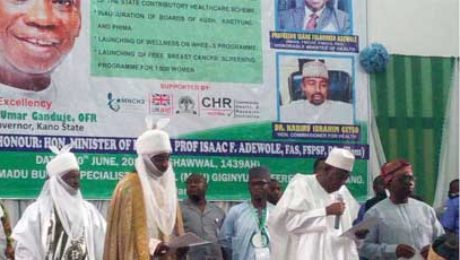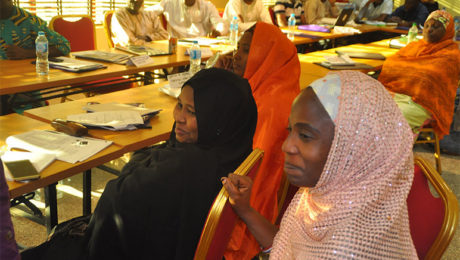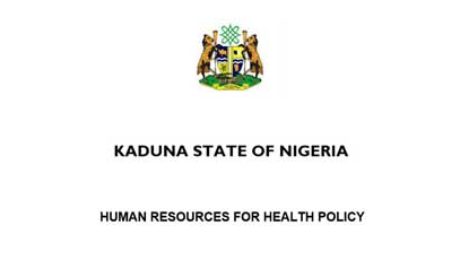Health care provision in Nigeria is the responsibility of the government at all levels as enshrined in the 1999 constitution (as amended). While the FHCs are themselves accountability structure at the community level as the state led Accountability Mechanisms (SLAMs) are, at the state level, the FHC Alliance on the other hand serves as the
MNCH2 has established MNCH accountability mechanisms known as SLAMs building on the Evidence for Action (E4A) experience. These mechanisms are built on existing CSO platforms. Their membership has been expanded and includes stakeholders who have a vested interest in improving MNCH and are motivated to take action such as civil society and community groups, health
MNCH2 together with PERL ARC/ECP and Bill and Melinda Gates grantees (Health Strategy and Delivery Foundation & Health System Consult Limited) supported the development and passage into law of the Kaduna Sustainanble Health Insurance Scheme SHIS Bill. The SHIS Bill will enable the state to move forward with developing a demand side financing scheme that
In Yobe, MCNH2 supported the development of the 1st ever Minimum Service Package document for PHC in the state. One of the key components of Primary Health care Under One Roof (PHCUOR) is the development of a costed minimum service package (MSP) for PHC Centre’s that will serve as a strategic focus for investments in
Kano State, the most populous in Nigeria, is known as the ‘centre of commerce’. Yet there are only 359 medical doctors serving its growing 13.4 million population. There are around five times as many nurses and midwives – but this doesn’t amount to even two health professionals per 10,000 population, compared to the World Health
In addition to inadequate political will, weak and non-transparent budgetary processes and corruption have been identified as major contributors to poor health financing, with negative impact on the Nigerian health sector. Year after year, Nigeria falls behind the commitment it made alongside 16 other African nations in Abuja in 2001 to commit at least 15
Kano State Ministry of Health in collaboration with MNCH2 and W4H domesticated the Task Shifting & Task Sharing Policy (TSSP). The policy seeks to address the human resource for health gaps and improve the quality of services provided by all cadres of health care workers in the State. The Kano Health Sector TSSP covers a
MNCH2 in collaboration with the National Health Insurance Scheme supported Kano State Ministry of Health (SMOH) to champion the establishment of the Kano State Contributory Healthcare Management Agency. The aim of the law is to ensure that residents of the 44 local government areas access healthcare services. The formal launching of access to care for
MNCH2 delivered a practical three days learning workshop to Journalists and Media professionals working in the six partner states of Jigawa, Kaduna, Kano, Katsina, Yobe and Zamfara. The aim of this activity was to improve the skill set of health reporters and producers especially on reporting reproductive maternal newborn and child health RMNCH issues. The
In collaboration with Save the Children, MNCH2 supported the State Government to develop and launch the Health Sector HRH Strategic Development Plan (2017-2021). The plan will address availability and retention of an adequate pool of competent health staff to provide health care in areas where their services are most needed. It will also address shortages
